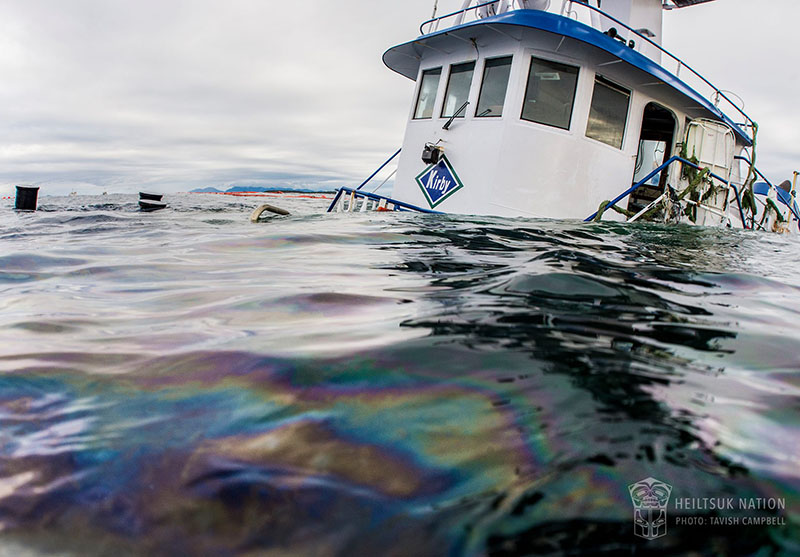Fatigue and the six hours-on, six-off watch system widely used by mariners were central factors in the October 2016 Nathan E. Stewart tugboat sinking in British Columbia, Canadian safety officials concluded.
In reviewing the Oct. 13, 2016, grounding and sinking in the Inside Passage, the Transportation Safety Board of Canada reached many of the same findings as the U.S. National Transportation Safety Board did in its December 2017 report.
Both reports found the Stewart’s second mate dozed off before missing a course change and running aground with the barge DBL 55 on Edge Reef in the entrance to the Seaforth Channel just before 1 a.m.
NTSB officials suggested a pilothouse alerter system — a monitoring system that requires periodic inputs from a crewmember or it sounds an alarm — might have helped avoid the accident. Those alerter systems are being phased in as part of the Coast Guard’s Subchapter M safety requirements for towing vessels.
The Canadian TSB report takes aim squarely at fatigue dangers in the maritime industry, describing how the second mate was unable to get sufficient rest during the six-on, six-off watches used by the Kirby Offshore Marine crew.
When he came on that night to pilot the 95’4″x32’x12’, 3,400-hp Nathan E. Stewart and its 287’6″x77’8″x8’ double-hulled barge on a southbound transit to Vancouver, British Columbia, the second mate had slept between 4.5 hours and 6.5 hours on each of the preceding three days — in the morning, but not in his evenings off-watch, the board reported.
“As a result, at the time of the grounding, the second mate had been awake for up to 13 hours,” investigators wrote.
An assistant tankerman was on watch with the second mate, but was off the bridge tending to other duties just before the grounding. After failing to contact the second mate by intercom radio, the tankerman was making his way back up to the bridge when the grounding happened.
Navigational alarms that were turned off or the bridge watch alarm suggested by NTSB officials could have kept the second mate from falling asleep and alerted the other crew members, the TSB investigators wrote.
Battered by swells against the reef, the tug sank about eight hours after grounding, spilling 29,000 gals. of fuel that required a month-long cleanup, and bringing renewed calls for restrictions on petroleum shipments on the Inside Passage.
The TSB report focuses its recommendations on better fatigue management in the industry.
“The use of the 6-on, 6-off shift schedule is a longstanding practice in the marine industry and was not designed according to principles of modern sleep science,” the report declares.
“Although the 6-on, 6-off shift schedule has been called into question by various studies and experts internationally, it continues to be used throughout the marine industry. For example, in this occurrence, the watchkeepers of the Nathan E. Stewart had been working this schedule for over 2 days prior to the grounding. Opportunities to sleep were provided, but the second mate's inability to nap, combined with the sleep-inducing conditions on the bridge, led to increased fatigue and resulted in the second mate's falling asleep while on watch.”
There is “a compelling need” for the industry to take on fatigue dangers, and adopt fatigue management plans to keep crews alert, according to the report.
“Implementing effective fatigue education and awareness for watchkeepers is one step that will assist the marine industry in going beyond the regulations to mitigate the risk of fatigue. Implementing comprehensive FMPs within the marine industry will bring it in line with approaches to fatigue management that have already been adopted by the rail and air transportation modes,” the report says.
The board specifically calls for the Canadian Department of Transport to require vessel owners implement comprehensive fatigue management plans specific to their operations.
---




